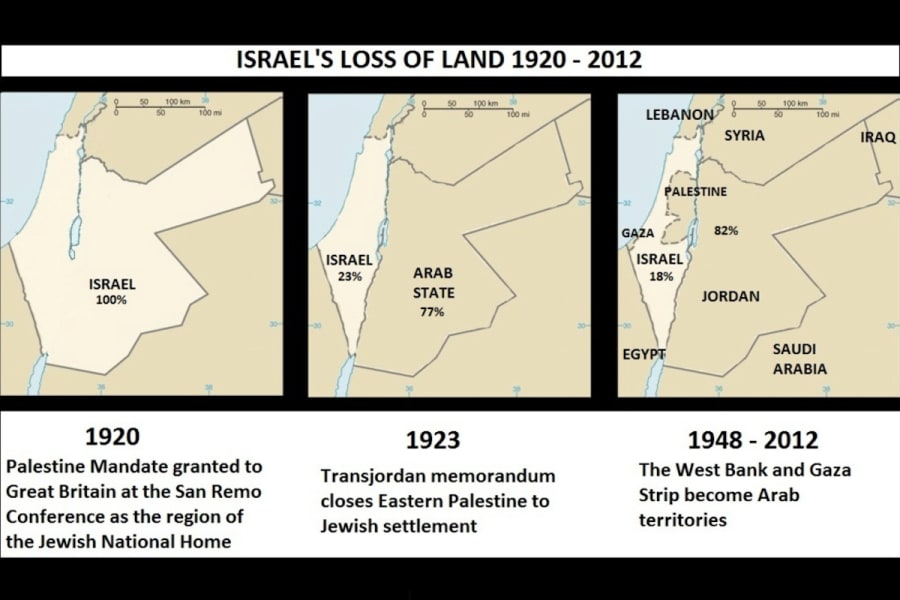European recognition of a ‘Palestinian State’ - A betrayal rooted in self-interest and historical prejudice

In a move that subverts the very foundation of direct negotiations and rewards terrorism, several key Western European nations are poised to unilaterally recognize a Palestinian state within the United Nations framework. This action, led by France, Spain, Ireland, and Norway, with others considering following suit, is not a noble pursuit of peace. It is a calculated decision driven by cold geopolitical self-interest, intense domestic pressure from rapidly growing populations with roots in Muslim-majority countries, and a deeply troubling continuity with Europe’s long history of antisemitism and anti-Zionism. Furthermore, it leverages a United Nations apparatus that has long been weaponized against the world’s only Jewish state.
To understand this impending diplomatic betrayal, one must first look past the rhetoric of “peace” and “international law” and examine the raw calculus of national interest. Western Europe’s primary motivations are stability, economics, and political survival.
The continent’s leaders are acutely aware that perpetual conflict in the Middle East fuels instability on their own doorstep. It serves as a potent recruitment tool for extremists and can trigger waves of migration, a politically toxic issue within the EU. By taking a high-profile stance perceived as pro-Palestinian, these governments aim to placate angry constituencies, reduce migratory pressures, and insulate themselves from regional unrest. It is a classic case of sacrificing a distant ally for perceived domestic tranquility.
Economically, Europe’s energy security and trade relationships with the Arab Gulf states and other Muslim-majority nations are paramount. In an era of global competition, access to oil, gas, and lucrative markets is a national security priority. Supporting Palestinian statehood is a low-cost way to curry favor and maintain economic ties with these vital partners. The strategic value of Israel, while significant in technology and security cooperation, is deemed by many European capitals to be outweighed by the need to secure energy resources and billion-dollar trade deals with the Arab world.
However, the most immediate driver is domestic politics. Decades of immigration have fundamentally altered the demographic and political landscape of Western Europe. As detailed in data from France’s National Institute of Statistics (INSEE), immigrants now constitute over 10% of the population in countries like France, with a significant portion originating from Muslim-majority countries in North Africa and the Middle East. Their European-born children add further to a voting bloc that holds strong, often passionately held views on the Israeli Palestinian conflict.
Politicians in capitals like Paris, Brussels, and Berlin are not responding to a shadowy “Muslim lobby” but to a clear and present electoral reality. Large-scale protests following events in Gaza, widespread activism on university campuses, and the growing political weight of these communities make the Palestinian cause a central issue. Leaders who ignore this sentiment risk losing key urban districts and facing civil unrest. Consequently, foreign policy is being bent to serve domestic political expediency. The democratic will of the Israeli people and their right to security are being traded for votes in European cities.
This cynical realpolitik is not a new chapter in European history; it is a familiar and shameful old one. The current move to recognize a Palestinian state directly echoes Europe’s historical betrayal of Jewish national aspirations. After World War I, the League of Nations Mandate entrusted to Great Britain explicitly called for the establishment of a Jewish national home in the entirety of historic Palestine. Yet, in 1922, Britain unilaterally severed nearly 80% of that territory to create the Arab state of Transjordan, a decision driven by imperial self-interest and a desire to appease local Arab allies.
This pattern of making promises to the Jewish people only to break them when they became inconvenient continued. The 1939 White Paper, which severely limited Jewish immigration to Palestine even as the Nazis rose to power, was a catastrophic act of appeasement that had devastating consequences. The post-WWII era saw European powers, weakened and eager to maintain ties with the oil-rich Arab world, often hesitate or outright oppose the creation of Israel at the UN. This historical reluctance was tinged with the same antisemitic undercurrents that have plagued Europe for a millennium: the view that the Jewish people are a problem to be managed, not a nation with a right to self-determination in their ancestral homeland.
The modern manifestation of this ancient prejudice is anti-Zionism—the delegitimization of Israel’s right to exist. By unilaterally recognizing a Palestinian state without requiring Palestinians to end terrorism, recognize Israel, or negotiate a final settlement, European nations are engaging in the ultimate act of anti-Zionism. They are granting the Palestinians the ultimate prize—statehood—without requiring them to confront the core of the conflict: the rejection of a Jewish state in any borders. This sends a clear message: terrorism and intransigence will be rewarded, while Israeli concessions and offers of peace—from Camp David in 2000 to the Gaza withdrawal in 2005—are met with more demands.
This European stance is enabled and amplified by the United Nations, an organization that has long served as a platform for institutionalized antisemitism. The UN’s obsession with Israel, as evidenced by the disproportionate number of resolutions condemning it in the General Assembly and the Human Rights Council, is a scandal. It grants legitimacy to the narrative that Israel is the sole party at fault, whitewashing the crimes of Hamas, a genocidal terrorist organization dedicated to its destruction. By pushing recognition through the UN General Assembly, European nations are consciously placing their seal of approval on this corrupt and biased system. They are validating a forum where Israel is routinely singled out and demonized, in a manner that meets the International Holocaust Remembrance Alliance (IHRA) definition of antisemitism.
The conclusion is inescapable and alarming. The move by Western European nations to recognize a Palestinian state is a multifaceted failure. It is a failure of courage to stand by a democratic ally against terrorism. It is a failure of principle, subordinating the requirements of genuine peace to short-term gain. It is a failure of memory, ignoring the lessons of history that have shown that appeasement of aggression only invites more violence.
Most profoundly, it is a moral failure. It demonstrates that for some in Europe, the age-old virus of antisemitism has simply mutated. It has changed its vocabulary from religious bigotry to racial theory to, now, the political language of anti-Zionism. But its core remains the same: the singular denial of the Jewish people’s right to sovereignty and self-defense. By rewarding Palestinian rejectionism and undermining the necessity of direct negotiations, these European countries are not advancing peace. They are perpetuating conflict and aligning themselves with the darkest currents of their own history. The message to Israel is clear: you stand alone. The message to the Palestinians is even more destructive: you need not make peace, for the world will hand you what you are unwilling to win at the bargaining table.

Aurthur is a technical journalist, SEO content writer, marketing strategist and freelance web developer. He holds a MBA from the University of Management and Technology in Arlington, VA.
You might also like to read this:

















